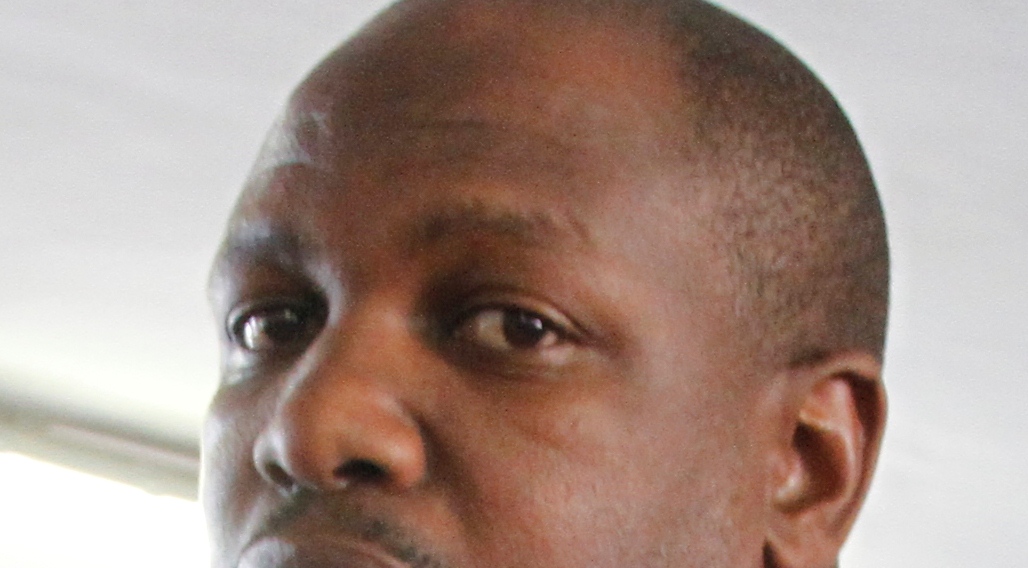
Tambudzai Chirongwe from Mudzimu village in Chiwenga ward in Muzarabani district, Mashonaland Central province, on the periphery of the Zimbabwean border with Mozambique, was forced to flee her home to seek refuge in Harare where she is now a vendor.
BY Moses Mugugunyeki
Chirongwe had to leave her home as she could not stand an abusive relationship, more so, being confined to the kitchen only.
“My ex-husband [now late] would not allow me to go out and socialise with other women in the community. He was so possessive, but above all, he was very violent,” said the mother of two.
“I had to flee because he would not even allow me to attend school, community and church meetings, arguing that they were meant for ‘men’.”
Chirongwe is among a multitude of women across the globe whose futures were disrupted by early marriages leading to failure to realise their dreams.
“I think the reason why I am in this position is that I married at a very early age, when I was a kid. My dream was disturbed,” she said.
Gender-based violence is widespread and it affects hordes of women and girls globally.
- Chamisa under fire over US$120K donation
- Mavhunga puts DeMbare into Chibuku quarterfinals
- Pension funds bet on Cabora Bassa oilfields
- Councils defy govt fire tender directive
Keep Reading
According to a 2019 World Bank report, violence against women affects one in three women globally in their lifetime.
About 35% of women worldwide have experienced either physical and/or sexual intimate partner violence or non-partner sexual violence, the report says.
Zimbabwe is not spared from the scourge, and Musasa Project, an organisation that champions the fight against gender-based violence in the country, concurs, pointing out that about one in three women aged 15 to 49 have experienced physical violence while about one in four women have experienced sexual violence since the age of 15.
The United Nations Declaration on the Elimination of Violence Against Women defines violence against women as “any act of gender-based violence that results in, or is likely to result in, physical, sexual or psychological harm or suffering to women, including threats of such acts, coercion or arbitrary deprivation of liberty, whether occurring in public or in private life”.
Growing acts of violence against women serve as a strong barrier to women accessing their right to participate fully and equally in politics and public life in general.
Just like any rural community, Muzarabani is fraught with harmful traditional practices that perpetuate the discrimination and infringement of women’s fundamental civil liberties.
In this district, and the province in general, the patriarchal value system is the order of the day.
The unresponsive participation of women in Mashonaland Central province correlates highly with the soaring rate of gender-based violence in the area.
According to the Zimbabwe Demographic Survey for 2015, the three Mashonaland provinces have the highest gender-based violence prevalence rate is of above 43 %.
Politically, women have played second fiddle to men when it comes to positions of authority. Of the 18 House of Assembly slots for Mashonaland Central province in the 2018 election, there is none for women.
In Guruve Rural District Council, there is only one female councillor out of the 24 councillors voted for in the 2018 election while of the 29 councillors in Muzarabani Rural District Council, three are female.
The scenario is the same across other rural district councils in the province.
“Very few women have made it in politics in Muzarabani. Most of them occupy small portfolios because men will not allow them into those big offices. There are no women MPs in Muzarabani and I don’t remember the district having one over the years,” Chirongwe said.
Although gender sensitisation workshops with traditional authority structures have been done in the country with the aim of transforming rural communities to be more sensitive to women’s economic and social rights, and gender equality and equity issues, women continue to suffer at the hands of harmful traditional and cultural practices.
Zimbabwe has come up with policies and laws that promote the equal participation of women and men in public life to ensure women and men are entitled to vote in all elections, and are eligible for election to all publicly elected bodies established by national law.
Section 17 of the constitution says: “the state and all institutions and agencies of government at every level must take practical measures to ensure that women have access to resources including land on the basis of equality with men.”
The constitution goes further by providing for a reserved quota for women in the Lower House and proportional representation in the Senate.
Despite these policies and laws and other efforts to create a facilitating landscape for rural patriarchal structures to be more receptive to gender equality and equity issues, women still play second fiddle to men when it comes to participation in politics.
Chief Chiweshe, born Mathew Chitemamuswe, of Muzarabani conceded that the patriarchal footprint was deeply embedded in his community.
“I have four women village heads under my jurisdiction, but the problem is that men don’t respect them at all,” Chief Chiweshe said.
“The other point is that most women are not confident enough to lead men. They lack the capacity to take up the duties.”
The traditional leader also pointed out that many women in Muzarabani were illiterate so they end up being weak candidates.
Social commentator Dorothy Chirwa-Tumbo concurred saying most marginalised communities were depriving girls of education, which at the end of the day robs them of understanding their rights.
“In these communities that you are talking about, most women lack information, education and access to the legal system,” Chirwa-Tumbo said.
“There is need to intensify programmes at the grassroots that help transform communities to be more sensitive to women’s economic and social rights
“Violence against women is not only disturbing for survivors and their families, but also necessitates considerable social and economic costs. Children growing up with violence are more likely to become survivors themselves or perpetrators of violence in the future.”
Chirwa-Tumbo said the situation obtaining in Zimbabwe with regard to women’s participation in politics could see the country missing on the Sustainable Development Goal 5, which aims at “achieving gender equality and empower all women and girls”.
Presenting a report at the UN General Assembly in October last year, the UN special rapporteur on violence against women, Dubravka Simonovic, highlighted concerns surrounding the impact of violence against women in politics.
“The scourge of widespread and systematic gender-based violence against women is deeply rooted in discrimination against women and continues to shape the lives of female politicians, activists and voters around the world, with devastating impact not only on the victims, but also on democracy itself,” Simonovic said.
“From the most commonplace acts of harassment and sexual harassment, to misogynistic and sexist verbal attacks, much of it increasingly online, women are persistently undermined and discouraged from being politically active.
“The aim of such violence is to preserve traditional gender roles and stereotypes and maintain structural and gender-based inequalities.”
As women’s political activity has grown in Zimbabwe over the past two decades, so has the frequency and degree of violent responses to their presence in politics, which restricts the political participation of women.
According to a book titled Counting the Gains, a collaborative production of the Gender and Media Connect and the Zimbabwe Women’s Parliamentary Caucus (ZWPC), the National Assembly has 31% female representation, down from 35% during the Eighth Parliament session.
Zimbabwe’s Senate female representation figures improved slightly, but still fall short of the 50/50 gender parity threshold as only 35 out of 80 senators are women, constituting about 43,75%.
The outcome of the 2018 election in both Houses as well as local governance reflects how rural communities give absolute priority to men when it comes to leadership and governance.
“Improving women’s participation in politics, especially in rural areas, requires a community-based approach and sustained engagement with multiple stakeholders, including traditional leaders,” said Zimbabwe Gender Commission CEO Virginia Muwanigwa.
“In our gender sensitisation engagements, we work closely with traditional leaders, church leaders, communities, and civic society as well as government departments,” she added.
Addressing a Gender Links-convened journalists’ workshop on women’s political participation in Zimbabwe in December last year, former Zimbabwe Electoral Commission commissioner Bessie Fadzai Nhandara said there was need to break the culture of silence fomenting violence against women in politics.
“There is need to empower women in politics to tackle the culture of silence against gender-based violence¸ to speak up and report such violence to the appropriate systems in order to hold the perpetrators accountable,” said Nhandara.
Chirongwe believes women have it all to lead communities and she hopes to see in future female candidates contesting with males for positions of leadership in Muzarabani.
“It might take years, but we yearn for a female representative in Parliament and council for our area,” Chirongwe said.










